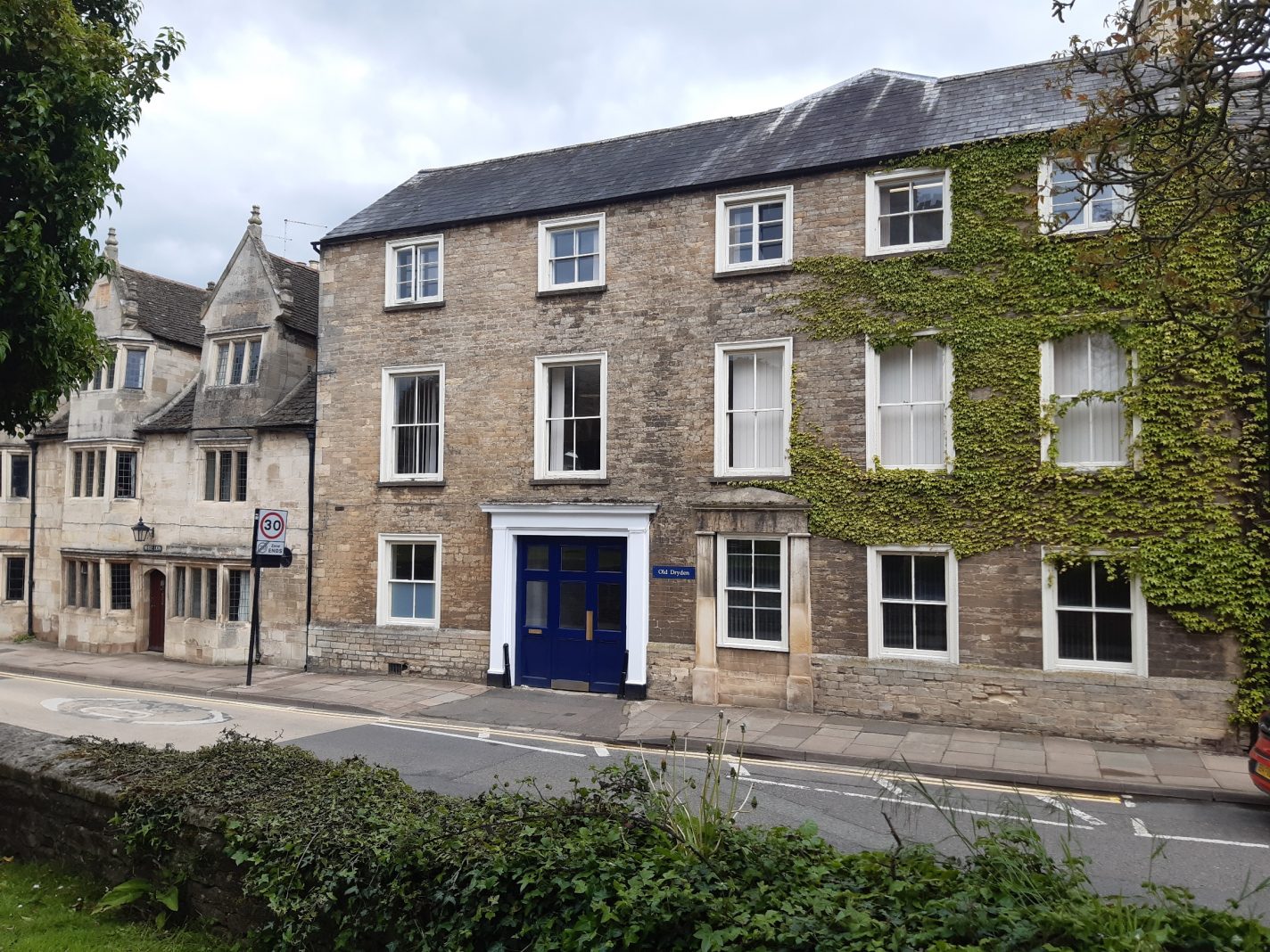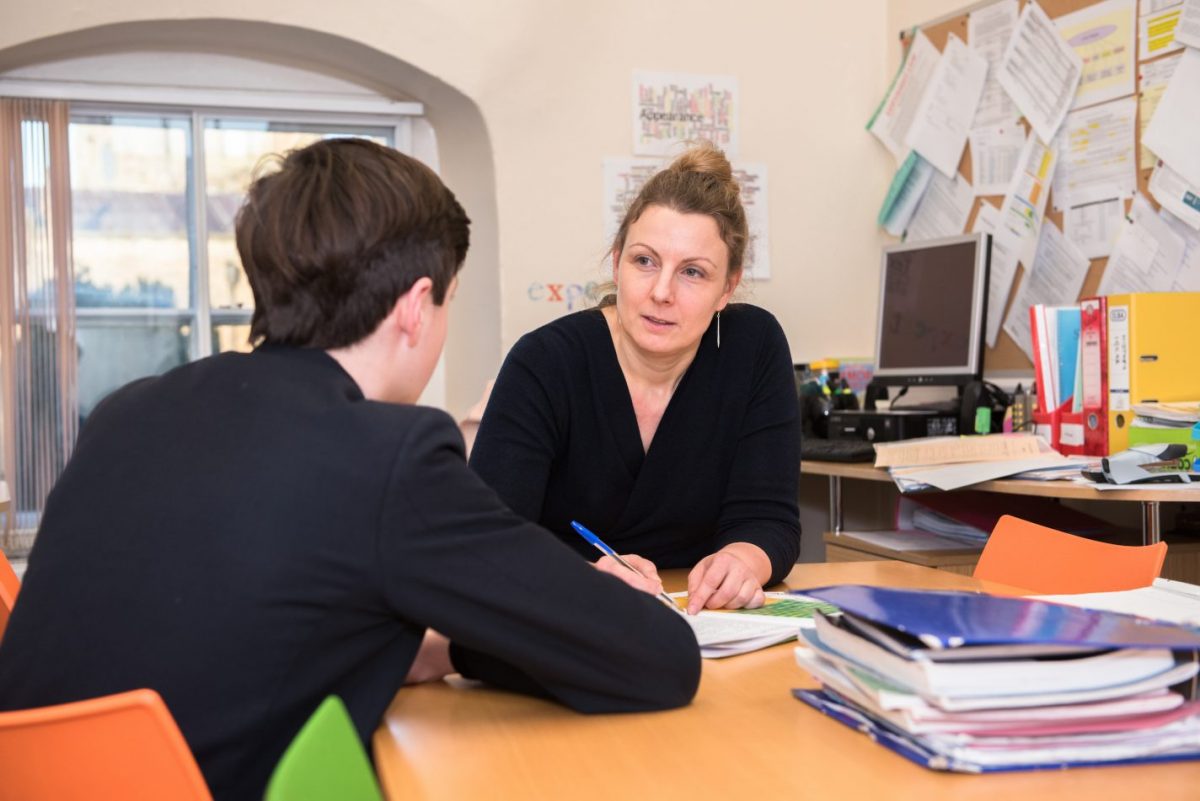
Old Dryden is at the centre of academic life as the home of both the English department and the Educational Support department. The building itself offers a wonderfully characterful space, with its bright airy classrooms reflecting the free exchange of ideas in lessons.
Subjects taught here
ISI Report 2021“Pupils of all ages are enthusiastic readers. They choose challenging texts, enjoy them for their own sake, and when appropriate draw out key themes. Pupils master writing early in their lives at the school. Essays, articles and pieces of research are crafted intelligently, with careful choice of word and meaning.”
The English department holds that studying both literature and language is nothing short of studying life. The department teaches the importance of clear and accurate writing, instilling in pupils the power of literature to help people understand themselves and the world around them.
All pupils are prepared for two separate qualifications in English – the IGCSE in English Language and the IGCSE in English Literature. Pupils study a wide range of fiction and non-fiction texts in different genres and from different time periods (including works by Shakespeare, Austen and Dickens) and learn important skills of close analysis, reasoned argument and careful writing. Written coursework components in both subjects give pupils the opportunity to explore their own particular interests and enthusiasms, and are good preparation for the kind of independent work pupils will encounter in the Sixth Form.
At A level, pupils are introduced to a wide range of novels, plays and poems from the medieval period to the present day. They are asked to think about their own responses to these texts as well as how the texts have been read by other people. Pupils develop important skills of close analysis, reasoned judgement and detailed and confident argument while also increasing their sensitivity to how language is used to shape meaning. There is no coursework component, although pupils do have the opportunity at the end of the Lower Sixth to write an extended essay on a text of their own choice. This essay involves the kind of independent reading and research that is typical of, and is certainly very useful preparation for, university study.
The department organises an exciting programme of co-curricular activities, which includes visits to the theatre, essay competitions, a poetry club, a creative writing club and an annual literary magazine, which showcases the best of the pupils’ talent. An active and popular English Society arranges talks from visiting writers and academics and runs a pupil-led book group. The department works closely with the School library, which contains an impressive range of critical reading as well as classic and contemporary novels, poems and plays; the library also subscribes to various online literary journals and periodicals.
Our Academic Scholarship programme seeks to inspire pupils who demonstrate either high general ability or exceptional ability in a particular academic area across either STEM or the Liberal Arts.
To me, being a Scholar is obviously about working hard and upholding a certain academic standard, but more importantly, it’s about a curiosity to learn. In the classroom, teachers always find time to answer more advanced, or simply off-topic, questions, which stretches our knowledge immeasurably.
Academic ScholarThe busy Educational Support department offers individual or small group support to those who experience problems associated with a diverse range of special educational needs or disabilities. With experts in multiple needs, the department provides extensive support for pupils across the ability range, helping them realise their academic potential.
Learning difficulties at Oundle do not preclude success. Indeed, it is frequently the case that difficulty in one area is balanced by an outstanding performance in another, and we aim to support areas of difficulty by playing to a pupil’s strengths. The department echoes the school’s ethos, valuing the richness of its pupils and striving to ensure all pupils have access to a full, balanced curriculum, which nurtures and enhances individual strengths, whilst supporting individual difficulties.
Educational support is delivered in a variety of ways, offering occasional or long-term support in individual and small group lessons. The department also goes into some mainstream classes to help identify areas of difficulty and to implement strategic support as required. Study Skills Surgeries, which are available to all pupils in the School, are provided on a regular basis for any pupil who feels they require strategies to improve their working habits or revision techniques.
ISI Report 2021Pupils with SEND achieve in line with their peers because the support provided shows detailed understanding of individual approaches in the teaching these pupils experience.

The Educational Support department has six specialist members of staff with expertise in working with pupils with Special Educational Needs and Disability (SEND), including dyslexia, dyspraxia, dysgraphia and organisational problems, or for whom English is not their first language.
In 1867 Oundle purchased Mr Swann’s commercial and posting house, the Dolphin Inn, as a residential boarding House. It was renamed Dryden House after the poet John Dryden, whose letters show he was often in Oundle on his way to and from Cotterstock. In 1938 Dryden House moved into a new purpose built boarding house on Home Close, and this building became known as Old Dryden.

